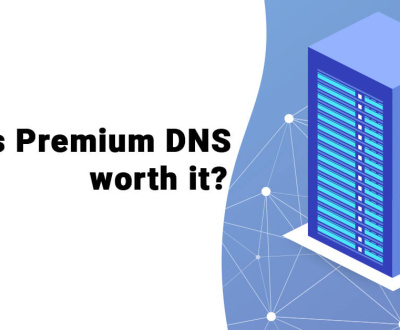Unveiling the Best Hosting Types for Your Ecommerce Site
For an ecommerce website, the best type of hosting is dedicated hosting due to its reliability and security. Dedicated hosting provides exclusive access to a server, ensuring faster load times, greater uptime, and protection against cyber threats, which are all crucial for online businesses.
As a business owner, you want your ecommerce website to be both speedy and secure. The hosting you choose plays a critical role in the success of your online shop. That’s why it’s important to carefully consider the type of hosting that’s best suited for your needs.
With so many hosting options available, it can be difficult to make a decision. In this article, we’ll explore the pros and cons of the different types of hosting to help you choose the best option for your ecommerce site.

Credit: elementor.com
Understanding Your Ecommerce Site’S Hosting Needs
Selecting the right hosting solution for your ecommerce website is a vital step in ensuring optimum performance and user satisfaction. However, it’s essential to choose the hosting type that meets your site’s unique requirements. Here’s what you need to consider when understanding your ecommerce site’s hosting needs.
Defining Your Site’S Requirements
Before choosing a hosting solution for your online store, you need to determine your site’s requirements. Here are a few things to consider:
- Traffic volume: Determining your website’s expected traffic volume is crucial in selecting the right hosting solution.
- Functionality: Consider the features you need for your site to function seamlessly, such as shopping cart software, payment gateways, and ssl certificates.
- Security: Security is a top priority for ecommerce websites. You should consider the level of protection required for your site and the measures each hosting type provides.
- Budget: Hosting prices can vary significantly between providers and hosting types. Consider your budget when making your decision.
Getting Familiar With Ecommerce Hosting
There are various hosting types available for ecommerce websites, and each has its pros and cons. Here’s a closer look:
- Shared hosting: Shared hosting is a suitable option for small ecommerce websites with limited traffic. It’s cost-effective but may negatively impact site speed and uptime due to sharing resources with other websites on the server.
- Virtual private server (vps) hosting: Vps hosting offers more customization and control, making it a flexible option for growing ecommerce businesses. It offers better performance than shared hosting but can be more expensive.
- Dedicated server hosting: Dedicated server hosting provides exclusive server resources for your ecommerce website. It offers maximum performance, reliability, security, and customization options. It’s the most expensive hosting option but offers excellent value for high-traffic ecommerce websites.
- Cloud hosting: Cloud hosting uses a network of servers to host your website, making it a flexible and scalable option for growing ecommerce businesses. It can be expensive, but you only pay for what you use.
Considering all these factors when deciding your hosting requirements will help you choose the best option for your ecommerce website. Remember that your hosting choice is crucial to your site’s success, so take your time and make an informed decision.
The Different Types Of Hosting For Ecommerce Sites
If you’re planning to launch an ecommerce website, choosing the right type of hosting is essential. The type of hosting you choose can have a significant impact on your website’s speed, security, and overall performance. In this section, we’ll explore the different types of hosting for ecommerce sites, so you can choose the best option for your business.
Shared Hosting For Ecommerce Sites
Shared hosting is one of the most affordable types of hosting. It involves multiple websites sharing a server, which means your website will be sharing resources such as bandwidth and storage with other sites. While shared hosting can be a good option for small ecommerce sites with low traffic, it may not be suitable for larger and more established businesses.
Some key points to consider include:
- Shared resources: Your website shares resources with other sites on the same server, which can impact your site’s speed and performance.
- Cost-effective: Shared hosting is often the cheapest option for hosting an ecommerce website.
- Limited control: You won’t have full control over your server, which can be a disadvantage if you need to customize your site.
Virtual Private Server (Vps) Hosting For Ecommerce Sites
Vps hosting involves sharing a server with other websites, but each website has its own dedicated resources. This means your website will have a virtual server that is separate from other sites on the same server. Some key points to consider include:
- Dedicated resources: Your website has its own dedicated resources, which can improve your site’s speed and performance.
- Customizable: You have more control over your server, which means you can customize your site to meet your specific needs.
- Higher costs: Vps hosting is more expensive than shared hosting.
Dedicated Hosting For Ecommerce Sites
Dedicated hosting involves having an entire server dedicated to your website. This means you won’t be sharing resources with other sites, which can improve your site’s speed and performance. Some key points to consider include:
- Full control: You’ll have full control over your server, which can be an advantage if you need to customize your site.
- High cost: Dedicated hosting is the most expensive option for hosting an ecommerce website.
- Scalability: Dedicated hosting can be more scalable than shared or vps hosting, which means it can handle more traffic as your business grows.
Cloud Hosting For Ecommerce Sites
Cloud hosting involves using multiple servers to host your website. This can improve your site’s speed and performance, as well as provide greater scalability and reliability. Some key points to consider include:
- Scalability: Cloud hosting can handle large amounts of traffic and is highly scalable.
- Security: Cloud hosting can be more secure than other types of hosting due to its distributed nature.
- Higher costs: Cloud hosting can be more expensive than other types of hosting, but it can also provide greater value for your money due to its scalability and reliability.
Choosing the right type of hosting is crucial for the success of your ecommerce website. Shared hosting is a cost-effective option for small businesses, while vps hosting provides more control and dedicated resources. Dedicated hosting is the most expensive but provides the best performance and scalability, while cloud hosting is highly scalable and reliable but can be more expensive.
By considering your website’s specific needs and goals, you can choose the best type of hosting for your ecommerce business.
What To Look For In Your Ecommerce Hosting Provider
When it comes to choosing a hosting provider for your ecommerce website, there are various factors that you need to consider. It is essential to choose the right hosting provider that can meet the specific requirements of your ecommerce website.
In this post, we’ll explore some crucial factors that you should keep in mind when selecting a hosting provider for your ecommerce website.
The Right Level Of Support
One of the most critical factors to consider when choosing an ecommerce hosting provider is the level of support they offer. When your website experiences any technical issues, you want to ensure that you can get help instantly to prevent any loss of revenue.
Here are the essential support features that you should look out for:
- 24/7 customer support: Ensure that the hosting provider offers round-the-clock customer support to assist you with any technical issues that you may encounter, regardless of the time of day.
- Helpdesk or ticketing system: Look for ecommerce hosting providers that offer a ticketing system or helpdesk to prioritize support issues. This will ensure that your issues are addressed promptly, and you don’t have to wait for long periods to receive assistance.
- Chat or phone support: Make sure that the hosting provider offers both chat and phone support to assist you with any complex issues that may arise.
Scalability And Flexibility
Your ecommerce website’s growth and success depend on the hosting provider’s scalability and flexibility. Therefore, it is crucial to consider the following scalability and flexibility factors:
- Bandwidth: Ensure that your ecommerce hosting provider offers unlimited bandwidth or scalability for your website. This will enable you to accommodate growth and handle any unexpected traffic spikes.
- Resource allocation: Look for a hosting provider that allows you to allocate your resources dynamically, depending on your needs. This will help avoid paying for unused resources.
- Multiple server locations: Consider a hosting provider that offers multiple server locations to ensure that your site’s speed and performance are optimal across different geographies.
Security And Backup Solutions
Security and backups are critical factors to consider when selecting an ecommerce hosting provider. Here are some essential aspects to look for in your hosting provider’s security and backup solutions:
- Ssl certificate: Ensure that the hosting provider offers an ssl certificate to encrypt and secure sensitive data like customer information.
- Firewall: Look for a hosting provider that offers firewall protection to safeguard your ecommerce website against malicious attacks.
- Regular backups: Consider a hosting provider that offers automatic or regular backups of your website to recover your site in case of data loss.
Finding the right ecommerce hosting provider is crucial for the success of your online store. By considering support, scalability, flexibility, and security and backup solutions, you can make an informed decision that meets the needs of your ecommerce website.
Pros And Cons Of Each Type Of Hosting
Shared Hosting Pros And Cons
Shared hosting is an affordable and popular hosting solution for ecommerce websites. However, it has its advantages and limitations, which are discussed below:
Pros:
- It is budget-friendly, as the cost is shared among multiple users.
- Shared hosting is easy to set up and manage. Many hosting providers offer user-friendly platforms to help you get started easily.
- Maintenance and security updates are taken care of by the hosting provider.
- It provides adequate resources for small ecommerce businesses with low traffic volumes.
Cons:
- There may be performance issues when compared to other hosting types, especially during peak traffic periods.
- Shared hosting may have limited resources, such as storage space and bandwidth allocation, which can hinder website growth.
- Your website may be affected by another user’s activity on the shared server.
- Limited control over server configurations.
Vps Hosting Pros And Cons
Virtual private server (vps) hosting offers a dedicated partition of a server’s resources, providing more control and flexibility to ecommerce businesses. Here are some pros and cons of vps hosting:
Pros:
- Provides a dedicated virtual space for your website, ensuring higher levels of performance, speed and reliability.
- Offers full root access and customization options to modify server configurations according to business needs.
- Vps hosting offers a higher level of security when compared with shared hosting.
- Vps hosting can handle larger volumes of traffic.
Cons:
- The cost of vps hosting can be higher than shared hosting.
- More technical knowledge may be required to set up and manage vps hosting.
- The responsibility of maintaining server upgrades and security is up to the business owner.
- The resources allocated to your website can be limited.
Dedicated Hosting Pros And Cons
Dedicated hosting provides an entire server dedicated to one ecommerce website. This type of hosting offers complete flexibility and control to ecommerce businesses. Here are several pros and cons to consider:
Pros:
- Dedicated hosting provides the highest level of performance, speed, and reliability, as it ensures all server resources are dedicated to your website.
- Offers complete control over server configurations and software installations.
- Provides the highest level of security.
- It can handle peak traffic loads.
Cons:
- Dedicated hosting is the most expensive hosting type and may not be suitable for small ecommerce businesses.
- Technical knowledge and a dedicated it team may be required to set up and manage the hosting server.
- Dedicated hosting requires regular maintenance and security updates.
- It may allocate more resources than necessary.
Cloud Hosting Pros And Cons
Cloud hosting is a flexible solution that enables businesses to scale up their resources when required. Here are some pros and cons to consider:
Pros:
- Cloud hosting ensures higher levels of uptime, as the website operates across multiple servers.
- It provides complete resource flexibility, allowing businesses to scale up or down when traffic demands increase or decrease.
- Security and backup solutions are taken care of by the hosting provider.
- Offers pay-as-you-go pricing models.
Cons:
- Cloud hosting can be expensive.
- Technical knowledge may be necessary to manage and optimize cloud hosting.
- Data dependencies can pose a risk to the business as data is stored remotely on the servers.
- It may encounter performance issues if other users on the cloud are consuming excessive resources.
Each type of hosting offers specific advantages and limitations. Businesses should consider their requirements and budget when selecting the proper solution. Shared hosting is a cost-effective option for small ecommerce businesses, while vps hosting is suitable for those requiring scalability.
Dedicated hosting ensures complete control and resources dedicated entirely to the website. Cloud hosting offers flexibility and scalability at a higher cost.
Frequently Asked Questions For Which Type Of Hosting Is Best For Ecommerce Website
What Is The Best Hosting Type For An E-Commerce Website?
The best hosting type for an e-commerce website is vps hosting or dedicated hosting.
What Are The Benefits Of Vps Hosting For E-Commerce Websites?
Vps hosting provides dedicated resources and flexibility to scale your e-commerce site as needed, making it a great choice for growth.
Is Shared Hosting Suitable For E-Commerce Websites?
Generally, shared hosting is not recommended for e-commerce websites as it lacks the security and resources necessary for online stores.
What Are The Benefits Of Dedicated Hosting For E-Commerce Websites?
Dedicated hosting provides the highest level of security, reliability, and customization for large e-commerce platforms with high traffic and resource demands.
What Is The Cost Of Vps Hosting Compared To Shared Hosting?
Vps hosting is more expensive than shared hosting but provides more resources and flexibility for e-commerce websites.
Conclusion
As an online business owner, choosing the right hosting provider for your ecommerce website is a crucial decision that can have a significant impact on your overall success. In our discussion of the different types of hosting available, we have examined shared, vps, dedicated, and cloud hosting options to help you make an informed choice.
Each of these hosting options comes with its own set of advantages and disadvantages, but ultimately, the best hosting type for your ecommerce website depends on your specific needs, budget, and business goals. By weighing the benefits and drawbacks of each hosting option, you can make an informed decision that ensures your ecommerce website remains accessible, secure, and speedy for your customers.
Don’t hesitate to research further or consult with a professional to find the hosting solution that is right for you.
About us and this blog
We are a digital marketing company with a focus on helping our customers achieve great results across several key areas.
Request a free quote
We offer professional SEO services that help websites increase their organic search score drastically in order to compete for the highest rankings even when it comes to highly competitive keywords.








